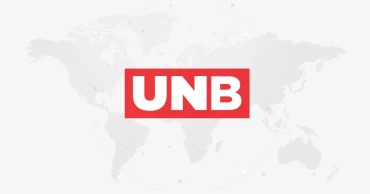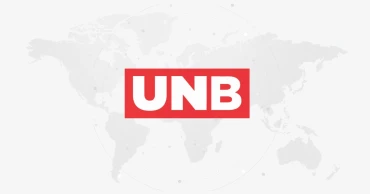Digital Connectivity
ICT Development Index 2024: Despite strong mobile network coverage, Bangladesh scores below regional and global averages
Bangladesh has scored 62 out of 100 in the 2024 edition of the International Telecommunication Union’s (ITU) ICT Development Index (IDI). This score places Bangladesh below the average for both lower-middle-income countries, which is 64.8, and the Asia & Pacific region, which averages 77.3.
In South Asia, Bangladesh’s performance is mixed compared to its neighbors. Pakistan scored 55.6, Sri Lanka 71.3, Bhutan 85.9, Maldives 81.5, and Afghanistan 33.1. Notably, India and Nepal were marked as having “insufficient data” in this year’s index.
Read more: Malaysia keen on increasing investment in Bangladesh’s Telecom, ICT: Palak
One of the key metrics where Bangladesh lags is universal connectivity, scoring 39.4. Internet usage among individuals stands at 38.9%, and 38.1% of households have internet access, according to ICT Development Index. Despite these challenges, Bangladesh excelled in mobile network coverage, achieving 98.5% population coverage for 3G and 4G networks.
The 2024 ICT Development Index revealed an overall average score of 74.8 for the 170 economies surveyed, showing a 3.3% improvement from the previous year. Over half of the studied economies scored above 80 points, yet significant disparities remain: the lowest IDI score is 21.3, and 29 economies scored below 50 points.
“Measurement is critical for achieving universal and meaningful connectivity. The journey toward a fully and meaningfully connected world is far from over, but with the right data, tools, and commitment, we can make significant strides in ensuring everyone benefits from digital connectivity, contributing to a more inclusive and sustainable future,” said Dr. Cosmas Luckyson Zavazava, Director of the ITU Telecommunication Development Bureau. “However, we have to recognize that each country has its own characteristics, faces its own challenges, and must follow its own development path.”
Read more: Mobile phone calls drops: Govt to enforce stricter compensation, says Palak
The ITU, a United Nations specialized agency for information and communication technologies (ICTs), continues to drive innovation in ICTs alongside its 193 Member States and over 900 member companies, universities, and international and regional organizations.
1 year ago
Digital connectivity key to build Smart Bangladesh: PM Hasina
Prime Minister Sheikh Hasina on Thursday said digital connectivity would be the key to transform Bangladesh into a smart nation in every way.
“Digital connectivity will be the key tool to build Smart Bangladesh. Smart citizens, smart economy, smart government and smart society will be developed on the basis of digital connectivity,’’ she said in a video message aired at the inaugural ceremony of the Digital Bangladesh Fair-2023.
Posts and Telecommunications Ministry arranged the three-day Digital Bangladesh Fair at the Bangabandhu International Conference Centre (BICC) for showcasing the IT and ITES products and services in the country.
She also hoped that the digital goods would play a significant role in investments and exports.
Hasina said that Digital Bangladesh is now a reality and the next target is to build Smart Bangladesh and Smart Nation.
Also read: PM directs DCs to increase food production, exercise austerity
“There is no substitute for using ultra modern technology to achieve the target of building Smart Bangladesh,” she said.
The prime minister said her government wants Bangladesh to become prosperous economically, ensuring maximum use of the digital technology that includes artificial intelligence, internet, virtual reality, augmented reality, robotics and big-data.
In this connection, she said that 5G services will be ensured at the industrial regions.
She mentioned that a revolution has taken place in Bangladesh in terms of digitisation.
Also read: Next stop, Smart Bangladesh: PM lays out renewed vision at BASA meet
“Young generation is now seeing the dream of building Smart Bangladesh.”
The Prime Minister said that her government had launched Bangabandhu Satellite-1 in the orbit in 2018 which has brought a revolutionary change in the broadcasting and telecommunications sectors.
She said that Bangladesh is earning a huge amount of foreign currency by using unused frequencies from satellites.
PM Hasina said that steps have been taken to install Bangabandhu Satellite-2 with multifaceted working capacity aiming to materialise the target of establishing Smart Bangladesh.
She said her government is going to set up a third submarine cable by 2024 as they have already installed the first and second submarine cables, adding that Bangladesh has so far achieved a bandwidth capacity of 3400 GBPS.
“The bandwidth capacity will be increased to 7200 GBPS in the middle of this year, while it will be 13200 GBPS after installation of the third submarine cable.”
She mentioned that Bangladesh is earning US$4.81 million every year through giving bandwidth leases to Saudi Arabia, France, Malaysia and India.
The PM said Bangladesh doesn’t need to depend on foreign satellites any more.
She noted that nearly 956298 kilometers optical fibre cables have been set up at union levels across the country while 10 Gigabyte capacity has been ensured in every union which help give high speed internet to the people and the government offices.
She said that a total of 8600 post offices across the country have been turned into digital ones using the infrastructure, she said, adding that nowadays 18 crore mobile SIMs are being used while the number of people using the internet is 12 crore.“The digital inequality and prices of broadband internet between the rural and urban areas has been erased due to it,” she added.
At the function, the newly introduced Posts and Telecommunication Award was distributed among 22 organisations and individuals in 14 categories in recognition of their praiseworthy works in the telecom sector to build Digital Bangladesh.
Education Minister Dipu Moni, Posts and Telecommunications Division Minister Mustafa Jabbar, Posts Telecommunications and Information Technology Ministry's Parliamentary Standing Committee President AKM Rahmatullah, and Secretary of Posts and Telecommunications Division Abu Hena Morshed Zaman spoke at the function.
3 years ago
Experts for increased rural digital connectivity for poverty reduction in APAC
Cross-sector collaboration is needed to lower the costs of rural area connectivity and improve digital literacy to close the digital divide and drive economic recovery during the pandemic, experts said at a webinar recently.
The Financial Times and Huawei organised the event "Strategies for Addressing the Asia-Pacific Digital Divide – Increasing Connectivity to Drive Economic Recovery."
Read Huawei to invest $150 million in talent development
The Asia Pacific is speeding up for digital transformation and underpinned by dynamic markets and a young population.
The significant rift of digital access yet hinders wider shares of digital benefits, which in turn leads to slower recovery from the pandemic. ICT leverages fundamental ways to drive economic rebound.
"This starts with fair access to digital services specifically on connecting the unconnected," said Michael Macdonald, the chief digital officer of Huawei Asia Pacific.
Read Mobile World Congress 2021: Huawei wins 5 awards
The ICT talent shortage is one of the key fields revealing the digital divide.
Poon King Wang, director of the Lee Kuan Yew Centre for Innovative Cities, Singapore University of Technology and Design, called for long-term strategies and sustained support to upskill people across generations and ensure the wellbeing of workers in digital transformation.
In 2017, Huawei, the ICT Division of Bangladesh, and Robi Axiata jointly launched the Digital Training Bus project to bring digital skills to women in the heart of rural Bangladesh. More than 60,000 women have received training till now, and 160,000 more will benefit from it by 2023.
Read Huawei launches new 5G products
To lessen the imminent labour deficit in APAC, 400,000 more people are expected to be digitally upskilled in the next five years through Huawei educational flagship programs such as Seeds for the Future and ASEAN Academy, according to Michael MacDonald.
4 years ago
170,000 schools to be connected with high speed internet by 2030: Palak
Some 1.7 lakh, or 170,000 primary and secondary schools will be connected with high speed fibre optic internet connectivity within 2030, State Minister for ICT Zunaid Ahmed Palak said Tuesday.
The state minister inaugurating a “Girls in Tech Day Bangladesh 2021” program organized by International Telecommunication Union’s Asia and Pacific regional office.
The campaign will be implemented under the Digital Connectivity project, he said.
Also read: 35,000 modern digital labs to be installed to give more access to girls: Palak
Palak said, “The ICT department is working closely with the Ministry of Primary and Mass Education to include Coding learning in the primary education syllabus from next year.”
Moreover 35,000 modern digital computer labs will be established across the country for making a skilled next generation, he said.
The initiative is one of the many taken by the government like Girls in ICT Program, Job Opportunity and Empowerment, ensuring no one lags in technology, said the State Minister.
Also read: F-commerce entrepreneurs rising significantly: Palak
With the assistance of the United Nations, fifty thousand entrepreneurs have been created, 4,000 women freelancers who aspire to be entrepreneurs while 7,000 women were trained to work as IT service providers and call center agents, he said.
Fifty percent of the entrepreneurs working in 7,000 Union Digital Centers are currently women, which is an achievement for the bottom up approach taken by the government, said Palak.
4 years ago


.jpg)



